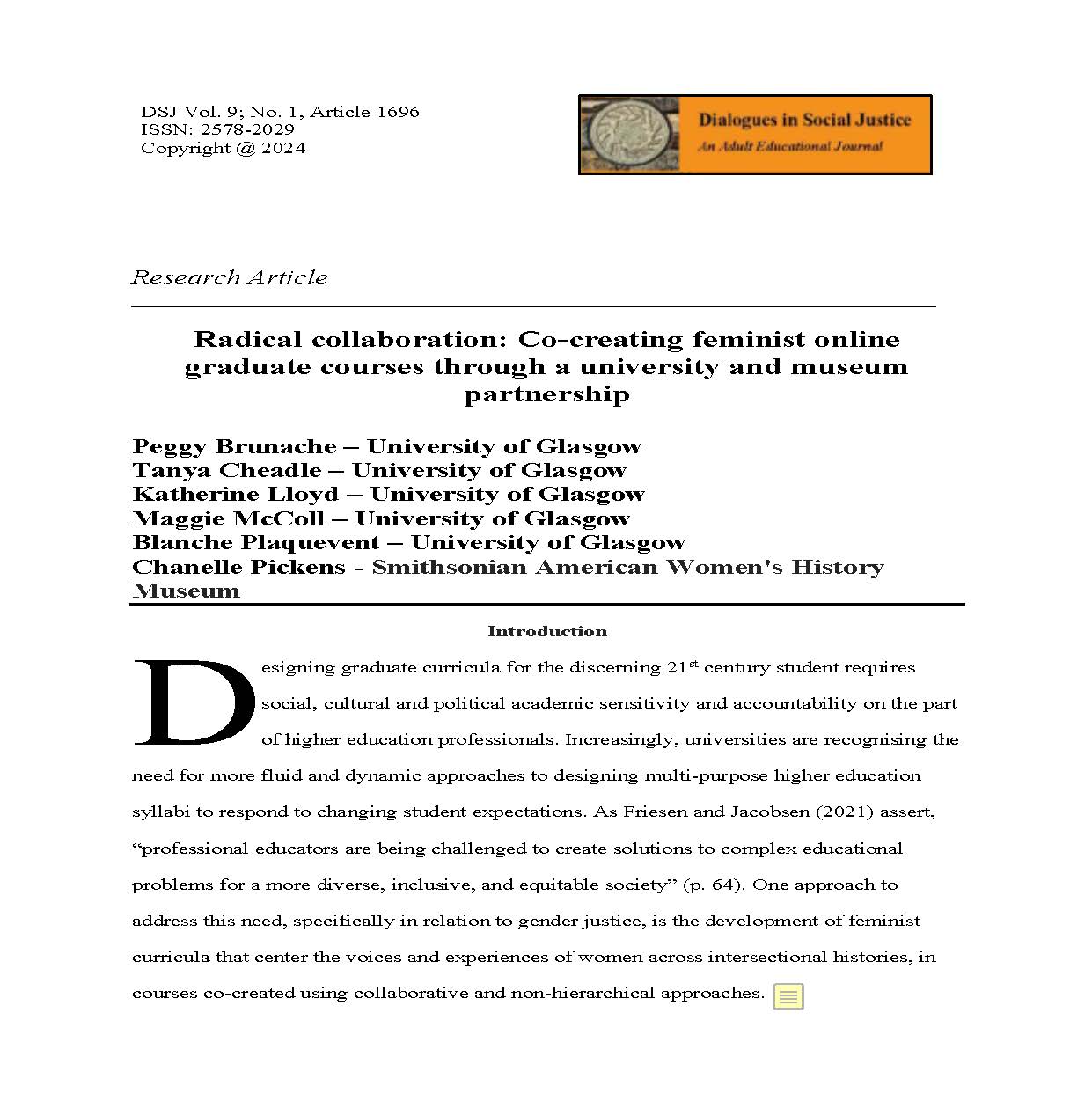Radical collaboration:
Co-creating feminist online graduate courses through a university and museum partnership
DOI:
https://doi.org/10.55370/dsj.v9i1.1696Abstract
Increasingly, universities are recognizing the need for more dynamic approaches to designing multi-purpose higher education syllabi, to respond to changing student expectations and to foster a more diverse, inclusive and equitable society. We propose here a new model of curriculum development designed to meet this need, specifically in relation to gender justice. Termed ‘radical collaboration’, we speak of an approach in which museum and university professionals work together, with intersectional feminism integral to the methodology and pedagogy. The specific example provided here, of the co-creation of an online graduate module on American Women’s History by the University of Glasgow, UK, in partnership with the Smithsonian Institution, Washington D.C., is explored in some depth. The article concludes by asserting the potential of the model to be applied to other institutional contexts, offering a powerful way for museums and universities to work collaboratively to teach history through a feminist lens.

Downloads
Published
Issue
Section
License
Authors who publish with this journal agree to the following terms:
a. Authors retain copyright and grant the journal right of first publication with the work simultaneously licensed under a Creative Commons Attribution License that allows others to share the work with an acknowledgement of the work's authorship and initial publication in this journal.
b. Authors are able to enter into separate, additional contractual arrangements for the non-exclusive distribution of the journal's published version of the work (e.g., post it to an institutional repository or publish it in a book), with an acknowledgement of its initial publication in this journal.
c. Authors are permitted and encouraged to post their work online (e.g., in institutional repositories or on their website) prior to and during the submission process, as it can lead to productive exchanges, as well as earlier and greater citation of published work (See The Effect of Open Access).

